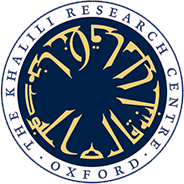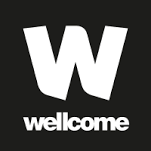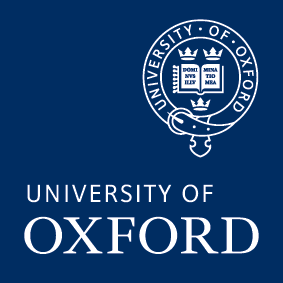Project Summary
This project was run at the Museum of the History of Science, University of Oxford, and funded by the Wellcome Trust as a Provision for Public Engagement (grant no. WT100591/Z/12/B, title: Medieval Medicine in Board and Card Games; Senior Investigator E. Savage-Smith). This was awarded as a supplement to the Investigator Award in Medical Humanities from the Wellcome Trust (grant no. WT100591/Z/12/Z) – ‘A Literary History of Medicine: The Best Accounts of the Classes of Physicians by Ibn Abi Usaybi`ah (d. 1270)’, with co-Senior Investigators Emilie Savage-Smith (Oxford) and Simon Swain (Warwick). The project ran from April 2016 to October 2017, with a no-cost extension till October 2019.
The project aimed to test learning and public engagement with a range of audiences through novel board and card games focused on medieval medicine in the Islamic world. Over the 18-month duration of the project, three games were developed and tested with schools and family audiences. There were also sessions for adult game enthusiasts. The reactions of the participants at each session were used to modify the game designs and assess the learning impact. The aspiration was to develop a spectrum of activities that would form an exciting and novel way in which to increase the general public’s understanding of and interest in medicine before modern times.
The project was carried out in collaboration with the History of Science Museum in Oxford, where there is a well-established learning programme for schools and family audiences. The design of the games was the primary responsibility of Daniel Burt, an IT specialist with experience in game design, who is a consultant to the Investigator Award (WT100591/Z/12/Z). The schools’ and public engagement element was delivered by a part-time education officer employed for the project, Sukie Trowles, and managed by the Lead Education Officer for the Museum of the History of Science, Christopher Parkin. The Museum’s education service, including primary schools’ education officer Helen Pooley, provided a platform for trialing the games as well as expertise in public engagement and the capacity to draw in a range of audiences. In addition to the game development and testing, other linked learning activities were created in association with the Museum’s collection of early scientific instruments from the Islamic world to create a more integrated offer of learning sessions for schools and colleges.
The total amount of public and schools’ engagement exceeded expectations. A total of 18 public events were delivered including 12 Sunday afternoon game testing sessions and 3 ‘House of Wisdom’ family events, and 16 sessions were delivered to schools divided more or less equally between primary and secondary and including ‘outreach’ visits to schools in the latter phase of the project. Three further community events to which the project contributed were Cheney Schools’ community ‘Festival of Ancient and Modern Science’, the Sudanese Supplementary School programme, and the University’s first festival of public engagement with research, ‘Curiosity Carnival’. In addition to these public sessions, the games and project were also presented to the public in a number of talks and lectures. The first of these took place at the Museum of the History of Science in July 2016. A recording of this talk is available online here and feedback from attendees of this talk can be viewed here. Further public presentations included a lecture for the Society for the History of Medieval Technology and Science in June 2017, and Curiosity Carnival in September of the same year.
After trialing the games during family friendly events and with school groups, it became apparent that long strategic games were not best suited to use within these settings. This was largely due to the time constraints of a 1.5 hour school session or the limited time families were able to spend engaged in a drop-in activity during a museum visit. These experiences were reflected in the development of the tile and dice games, which were designed to be shorter games that were also more accessible for younger players. The longer strategic games were still popular, reflecting trends in the rising popularity of game play, evidenced by the success of local game café Thirsty Meeples. It is possible that the use of games in the Museum would be better suited as special programmed activities in which visitors are better prepared to spend a longer amount of time learning and playing the games. However, it is interesting to note that the experience of game development and testing during the project influenced the development of a new type of activity – namely, the object handling trail based upon the Idrisi map playing board – and that the ‘gamified’ nature of this activity – moving historical figures from one city to another, collecting clues and piecing together answers to historical questions -- provided enhanced learning outcomes.
As a direct result of this project, a new activity suitable for a family audience has been developed focusing on the contributions of Islamic physicians and scholars in medical history. An interactive object handling session in which visitors travel around a large map that has been turned into a playing board, the development of this activity has been influenced by the project’s research into the use of games as a tool for learning. In developing this activity we have made additions to the Museum’s collection of handling objects. These additions will increase opportunities to engage with medical history within the museum’s education programme. This activity will become part of the Museums regular annual programme of family activities. It has also been adapted and trialed with an older audience and has proved successful as an activity for KS3 and KS4 students that can be offered as part of curriculum enrichment visits by secondary school pupils.
During the project, the Museum has collaborated with the learning officer and curators at the Bodleian library to give secondary school pupils 16 access to medieval medical manuscripts and Arabic scientific manuscripts. The Museum’s relationship with the Bodleian will now be on-going, with school groups given the opportunity to book joint visits and expand their access to the University’s resources. Useful links have also been made with the Ashmolean Museum, with visits to the Islamic collections facilitated by the secondary schools’ education officer. The suite of primary school resources that has been developed will continue to be offered to school groups who have chosen to study Early Islamic civilisations as a non-European focus within the history curriculum, religious education visits and curriculum enrichment visits. In January 2018 the Museum used a selection of these resources with a local primary school as part of a series of curriculum enrichment sessions the school had booked at the Museum.



